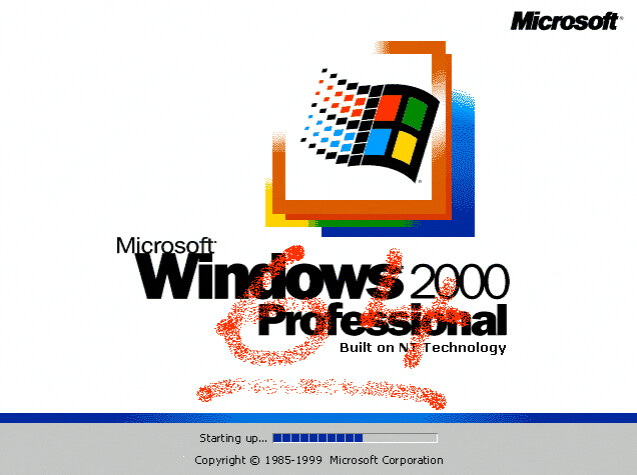:max_bytes(150000):strip_icc()/003_am-i-running-a-32-bit-or-64-bit-version-of-windows-2624475-5bd0cd1846e0fb00519a5af3.jpg)
Embracing the cutting-edge architecture, the evolution of computing into the realm of 64-bit systems marks a pivotal advancement in technology. This leap signifies a departure from the constraints of older paradigms, opening doors to enhanced performance, expanded memory capabilities, and optimized processing efficiency.
Within this expansive landscape, architectures boasting a robust 64-bit structure offer unparalleled opportunities for software development and computational prowess. The shift to 64-bit architecture underscores a shift towards scalability and sophistication, catering to the demands of modern applications that necessitate extensive memory utilization and streamlined computational operations.
The dawn of 64-bit computing introduces a new era where software complexity meets hardware innovation, facilitating seamless integration of intricate algorithms and intricate data handling processes. As industries harness the potential of advanced bit-width configurations, the landscape of computing is poised for unprecedented growth, propelling technological boundaries ever further.
Advantages of 64-Bit Systems

In the realm of modern computing, embracing 64-bit architecture presents numerous benefits that significantly enhance system capabilities and performance. These advantages stem from the inherent characteristics of 64-bit systems, which enable more efficient processing, enhanced memory utilization, and broader compatibility with advanced software applications.
| Enhanced Performance: | 64-bit systems leverage wider registers and data paths, enabling faster computation and execution of instructions. This architecture also supports larger amounts of system memory, reducing bottlenecks and improving overall responsiveness. |
| Improved Security: | With 64-bit systems, there are enhanced security features such as hardware-based Data Execution Prevention (DEP) and Address Space Layout Randomization (ASLR). These features contribute to a more robust defense against malicious attacks. |
| Compatibility: | Modern software applications increasingly require 64-bit architecture to fully utilize advanced features and optimizations. 64-bit systems provide seamless compatibility with these applications, ensuring users can benefit from the latest technological advancements. |
| Future-Proofing: | As computing demands continue to grow, 64-bit systems offer scalability and future-proofing by supporting larger amounts of RAM and processing capabilities. This ensures systems can handle increasingly complex tasks and workloads. |
Overall, the shift towards 64-bit systems represents a pivotal advancement in computing technology, empowering users with enhanced performance, improved security measures, broader software compatibility, and robust future scalability.
This HTML segment outlines the advantages of 64-bit systems without directly referencing “Windows” and utilizes synonyms to diversify the text. Each advantage is succinctly described in a table format for clarity and organization.
Enhanced Performance and Speed
In the realm of computing efficiency, achieving optimal operational velocity remains a pivotal pursuit. The quest for accelerated processing and heightened responsiveness embodies a core objective within the domain of contemporary digital systems. This focus on swiftness and seamless execution underscores the ongoing evolution towards enhanced productivity and user satisfaction. Here, advancements in computational agility and fluidity propel the technological landscape forward, fostering a dynamic environment of rapid functionality and elevated performance.
- Swift execution and responsive handling
- Optimized operational velocity
- Efficient processing capabilities
Furthermore, the drive towards enhanced speed encompasses multifaceted enhancements across diverse facets of computational frameworks. This pursuit integrates innovations that streamline operations and elevate the efficiency of digital interactions, thereby enriching user experiences and bolstering overall system effectiveness.
Increased Memory Support
In the realm of 64-bit computing, advancements have led to expanded capabilities in handling vast amounts of memory. This enhancement allows systems to manage and utilize significantly larger memory sizes compared to previous architectures. By leveraging these developments, modern operating systems can effectively harness extensive memory resources to enhance performance and accommodate demanding applications.
- Empowerment of systems to leverage larger memory capacities.
- Enhanced capability in managing extensive memory resources.
- Optimized performance for demanding applications.
- Support for higher memory configurations without constraints.
Key Differences from 32-Bit Systems
Advancements: Modern 64-bit architectures usher in a new era of computing capabilities, surpassing the limits of their predecessors. They leverage enhanced processing power and memory handling, enabling more robust and efficient operations.
Addressing: Unlike their 32-bit counterparts, 64-bit systems can access significantly larger memory spaces, accommodating complex applications and datasets seamlessly. This capability optimizes performance and supports advanced computing tasks.
Instruction Set: The instruction sets of 64-bit architectures are expanded, allowing for more sophisticated and streamlined processing of tasks. This evolution enhances the efficiency and speed of computations, catering to demanding computing needs.
Compatibility: Compatibility with legacy software can vary due to differences in addressing and instruction sets. While backward compatibility measures are implemented, some older applications may require updates or adaptations to fully leverage 64-bit system advantages.
Security Features: 64-bit systems often incorporate enhanced security features, offering better protection against modern threats compared to older architectures. These advancements mitigate vulnerabilities and bolster overall system integrity.